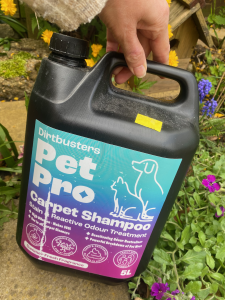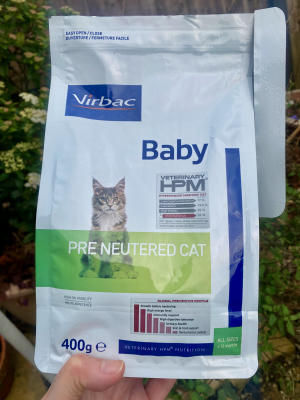Owning a kitten can add happiness to your family, but there will be challenges like chaos, accidents, and a shift in personal time as they depend on you constantly. Your new furry friend might stick by your side or prefer independence, and they may unintentionally damage your furniture with their claws or even give you a surprise scratch when climbing up for dinner. Are you ready to embrace the responsibilities of kitten ownership?
A kitten, like a child, lacks awareness of danger. From cables to hiding spots, hazards abound for a few-week-old feline. Training is essential; accidents on carpets may happen until it learns the litter tray. Instead of scolding, guide your kitten, as it can’t grasp right from wrong or dangers. Always supervise outdoor time; unsupervised outings risk survival against predators, lack of hunting skills, and road dangers. Life’s a grand adventure for your furry friend.
1: Is introducing a new kitten to my older cat or dog safe?
Thinking about your older cat or dog before bringing a young kitten into the home is crucial. Older pets might not handle the energy and playfulness of a kitten. Seniors often prefer peace, especially when they reach geriatric age.
If your pet has dementia, maintaining a routine is essential, so introducing a lively kitten could cause confusion and lead to aggression towards the new addition.
It’s essential to show equal affection to all pets in your home to prevent jealousy and conflicts, especially with older pets. Start by prioritising your older pet. For example, feeding and greetings so they see you as their primary caregiver. Gradually introduce shared activities and meals once trust is established. Provide your new kitten with their toys, scratch post, and litter tray to avoid territorial issues with your other pet
When considering adopting a kitten from a rescue, it’s a good idea to ask staff if your older cat or dog can meet the kitten you’re interested in. Rescuers often assess dogs by introducing them to cats in a controlled environment. Like humans, animals have preferences of whom they bond with, so your pet may have a similar inclination. It can be helpful to have multiple visits to ensure compatibility. A reputable rescue organisation will understand and prioritise finding the best home for their animals.
2: Where to find kittens: breeder, kitten farm, rescue centre

Kitten season usually runs from April to late autumn, but if a female cat isn’t spayed, she can have kittens anytime. Sadly, unwanted kittens often end up in rescues or, worse, are dumped or offered for free online. There’s a concerning issue where criminals exploit free kittens, using tricks like marking them with paint for profit in the name of blood sports. Just like puppy farming, kitten farming is unfortunately quite common, too.
Adopting a rescue kitten
Animal charities depend on the support of animal lovers who choose to adopt, creating space for other kittens and cats needing refuge. Adoption fees set by rescue centres cover initial veterinary checks, vaccinations, flea prevention, and relevant treatments. These funds also contribute to staff wages and the overall operational expenses of the rescue. In 2024, rising costs, especially in veterinary bills, have doubled or even tripled for rescues. Increased energy and food prices, along with the general rise in the cost of living, have led some pet owners to give up their pets. Rescue centres are now at full capacity, making adoption crucial.
Cats can become pregnant when still a kitten – at the young age of 4 months. A litter can consist of up to nine kittens at any one time, and with intakes, a rescue centre will call it The Kitten Crisis. This could be resolved if pet owners neuter their cats.
When adopting a kitten, remember it will grow into an adult and one day become a geriatric in need of extra help from you. Cats are for life. They deserve home comforts and should not be adopted to live outside, as cats can die from the cold.
Kitten farming in low-welfare illegal breeders
“More than half of vets surveyed (54%) said that poor conditions of puppy and kitten farms can lead to illnesses and complications which would incur treatments costs of over £1,500 in the first year of an animal’s life. In somes severe cases, the costs could rise to £5,000 or even result in the pet being euthanised.”
Gov.UK
Watch the video: Cats Protection – The Big Kitten Con
The law in the UK is that if a single cat has more than five litters, it becomes a breeding business and must be licenced and certified by the local authority.
However, criminals ignore such legalities. Cats and kittens live in filthy cages where disease is rife. Felines are not vaccinated and have severe health problems. Their purpose is profit, not the welfare of any animal in their care.
Petfished is akin to ‘catfishing,’ where someone creates a deceptive profile to appear honest and genuine but intends to deceive you into parting with your money. In the context of pets, petfishing involves fake pet owners or breeders selling animals under the pretence of proper care when, in reality, the pets are sick and underage. Their ultimate goal is to take your money in exchange for a kitten that may require costly care. While the desire to rescue a kitten is commendable, it’s crucial to research and identify red flags before committing to a purchase.
Stay alert when encountering kittens for sale on Social Media, online platforms like Gumtree, flyers, roadside sales, or even some pet shops (unless they are reputable businesses). In many cases, you might not directly buy from the main culprits but rather from an intermediary seller. Kittens from unscrupulous breeders are often sold before reaching the appropriate age; ideally, a kitten should stay with its mother until it’s at least 12 weeks old.
Questions you should ask the seller are:
- The name of the vet and practice
- Genetic history
- To see a copy of their licence if classed as a breeder
- Birth date
- Can I see the kittens with Mum
- Vaccinations (cat flu, feline parvovirus enteritis, leukaemia FeLV)
- Litter trained
- Diet
- Any current health issues
The seller might offer reasons like financial difficulties or a breakup to justify selling kittens privately without a license. However, they should still be interested in where the kitten will reside and ask you relevant questions about its future home.
I wrote an article about a border collie puppy named Nell who came from a fraudulent breeder. It was published in the Withernsea District and Community News. The story is heart-wrenching but sheds light on important realities.
Buying from a registered breeder
I had an unsettling experience with a breeder who didn’t follow welfare rules. Tabitha, a 6-month-old La Perm kitten, was sold to me for £25 without any paperwork, and there were multiple delays in the exchange. A vet visit revealed Tabitha likely came from a kitten farm, evidenced by ear mites and severe diarrhoea. Ironically, the breeder was considered legitimate. When I contacted a La Perm breeder mentioned in Your Cat magazine about allergies, she indirectly confirmed the breeder was part of her club, mentioning a name when I specified the location.
There are ways to find a reputable breeder:
- Breed club rehoming
- Official breed clubs for pedigrees
- Refer to the Governing Council of the Cat Fancy
3: Kitten identification options: cat collar tags & microchips
“The loss of a cat can be very traumatic and it is at this point that an owner often wishes that he or she had taken the time to give the cat some form of identification in case someone finds it and knows who to return it to.”
International Cat Care
On 10 June 2024, it will be compulsory for your cat to be chipped by 20 weeks. A kitten can be microchipped at eight weeks, and it would be easier to have this done when your cat is being spayed or neutered.
A veterinary professional or rescue employee will insert a microchip into the back of your kitten’s neck. The chip is a rice-size grain, so very small.
A microchip’s purpose is to contain your kitten’s details, including medical problems, address, and contact details. If your kitten goes missing, if found and scanned by, for example, a vet or member of the public who has a scanner, you’ll be reunited.
Initially, a chip will only contain your kitten’s name and chip number. The owner is responsible for contacting the microchip company to register the chip with your contact details and a secondary contact. When registered, you’ll receive a certificate.
Without registration, there is little chance of reunification.
Legitimate microchip companies
“Your pet’s microchip contains a number, which will show up whenever your dog or cat is scanned. You must make sure that your dog or cat is registered on one of the following databases (they all meet government standards).”
Gov.UK
The microchip company must be registered with Defra – you can guarantee that if the implant was by a vet, it’s a genuine company. Chips can malfunction or push their way out through the skin. Whenever you visit a vet, ask for the chip to be scanned to check whether it works or has moved to another body part.
In my article, I’ve provided a list of credible microchip companies. Opting for a fake company could compromise your data, cause difficulty in reuniting with your pet, cause financial loss, and even a £500 fine from the government. Pet Chip Registry is NOT Defra-approved, but charges customers to add the microchip details to the National Pet Microchip Registration Database – this database does NOT conform to UK Government standards.
It’s worth noting that most companies charge for pet registration and may have monthly fees. The microchip company I recommend is PetDatabase because it is free to use and Defra-approved.
Old-fashioned collar and tag
Get your kitten accustomed to wearing a kitten collar and a tag. I use an engraved 25mm tag with the following information:
- Your cat’s name
- ‘I am microchipped’
- Mobile number
- Optional: house number and postcode
- Any medical issues (deaf, renal, dementia)
Of course, if preferred, use your surname instead, as it’s a theft prevention tactic. Unless your cat is highly friendly, a thief will unsuccessfully get a response from your cat.
If your cat wears an ID collar with a contact number, anyone who finds them can easily reach out to you by calling the provided number.
Quick-release collars are vital for curious cats, as they allow for safe exploration. Cats of all ages love to climb and can get into mischief due to their inquisitive nature. If your cat happens to lose its collar, you have the microchip as a reliable backup.
4: Choosing between insurance and health plan scheme
Deciding on pet insurance or opting for a Health Care package is entirely up to you. It is worth noting that both differ.
Health care packages
Many veterinary practices utilise Health Care packages. My Northern veterinary practice used Pet Health Care, but my new Southern practice has its own package. Vets 4 Pets have a Complete Care package.
It’s important to understand that these packages have their own rules and benefits and should not be mistaken for insurance policies which may pay out against a claim.
An example of what your care package may offer:
- Full vaccination and / or boosters
- 6-monthly checkups
- Flea and worming treatment
- Discount on neutering
- Discount on insurance claim administration fees
- Discount on microchipping
You can read about more incentives in my article Ideas to Raise or Save Money for Pet Expenses.
Insurance
Dealing with insurance companies can pose challenges, as they often try to avoid payouts and impose high excess fees. Additionally, some veterinary practices may charge fees for handling insurance claim paperwork. However, a benefit may include an administration discount if you have a health care package.
Many rescue organisations provide six months of pet insurance upon adoption, typically through providers like Pet Plan; it allows you to continue coverage or switch to another insurer.
For comprehensive coverage and additional perks, consider options like Fluffy Pet Insurance, which offers rewards such as vet assistance, dog training, access to a community platform, and discounts on food, toys, and treats.
It’s crucial to remember that insurance policies usually do not cover pre-existing conditions, so keep this in mind when renewing or shopping for a new policy before your current one expires. This can be costly if you move providers, so always look at ways to generate money to pay for any expenses – my category Help & Advice can help with this.
5: Feeding Guidelines for Your New Kitten: How Much to Feed

As your kitten grows, they’ll need three small meals a day. If you work full-time, planning how to accommodate these feedings practically and financially is essential.
Kitten food is readily available in supermarkets, but for more nutritious options, consider brands like Hills or Royal Canin, which are healthiest for a growing kitten. Nutritional brands are sold in veterinary practices, pet stores such as Jollyes or Pets at Home, or online at Viovet or Zooplus.
A kitten can eat solids from 8 weeks old. An energetic kitten needs dry and wet food formulated for a growing feline, giving higher calories for growth, nutrients, minerals and vitamins. The same food can be used for an underweight geriatric cat under veterinary advice.
Alongside food, fresh water is necessary. Always use a fresh bowl for daily meal times, and clean water bowls regularly because of scum buildup. Of course, you can spoil your kitten with the occasional treat, too!
6: Training Your Kitten to Use a Litter Tray: Tips and Techniques

“All you’ll need to do is buy a plastic litter tray big enough for your kitten to move around in and fill it with enough litter to cover the bottom of the tray (if you can use the same one used at the breeder’s house, your kitten will appreciate the familiar smell and texture).”
Hills Pet
Firstly, it’s important to note that the mother cat won’t actively teach her kittens how to use the litter tray. However, kittens can observe and learn when their mother uses it. The mother cat also plays a role in training by stimulating urination and defecation in her kittens through licking. Kittens typically start developing natural digging instincts around 7 to 8 weeks old, though it might take some time to cover their waste fully. When my kitten was learning, my older cat covered his waste initially.
Watch the Video: Coir fibre litter comes in bricks and is easy to store
Some older cats prefer privacy when using the litter tray, so it’s worth considering whether to introduce your kitten to a hooded litter tray. While these may be more expensive, they offer benefits such as concealing the contents, reducing litter scatter, and sometimes preventing your kitten from hanging over the edge. Initially, start with a basic low-sided kitten litter tray and then assess your kitten’s preferences as they grow.
Tips to help your kitten identify and use a litter tray:
- Opt for a low-sided litter tray. The tray size should be 1.5 times the length of your kitten (the base of the tail to the tip of its nose). This allows enough room for movement
- Choose a kitten litter and consider buying the brand the rescue centre, breeder or previous owner used.
- Let your inquisitive kitten watch you fill the tray the first time
- Put your kitten into the litter tray after every meal, before sleep time and wandering around and sniffing
- A kitten or adult cat will toilet several times a day
- Reward your kitten with a treat each time it uses its litter tray. It promotes good behaviour
- Never scold a kitten for accidents, or it might affect training and cause stress
You might be interested in my article Eco Hacks and Section 2, which covers Pet-friendly cleaning and health hacks.
7: Removing Cat Urine Stains from Carpets: Effective Technique


Your kitten (or elderly cat) may have an accident on the floor. Never punish your feline – instead, reinforce positive behaviour by teaching your kitten that a litter tray is a toilet. Urine can linger because it contains uric acid, so a feline will return to the same spot. A similar occurrence happens in the garden.
Consider two methods of removing urine and the smell of cat pee.
Method 1:
- Using kitchen towel, press on the stain to absorb the pee. Any recommendation is cold water.
- Mix biological washing powder and water – it may not dissolve – blot with kitchen towel
- Repeat several times over a few days
- Squeeze white vinegar onto the urine patch to neutralise the bacteria
Method 2:
- Absorb the pee with kitchen towel as above
- Fill the carpet cleaner bottle with cold water and Pro Pet Solution
- Vax slowly
- Spray with Pet Odour Neutraliser. It contains enzymes, eliminates odours and prevents the smell from returning. It has an air-dry function
Watch the Video: Testing Pro Pet
Buy Pet Pro Carpet Shampoo from Dirtbusters store on Amazon
Buy Pet Odour Neutraliser from Dirtbusters store on Amazon
Watch the Video: Bissel ReadyClean Carpet Cleaner 54K25 (other models in the description box)
Watch the Video: Vax Steam Fresh Combi Classic S86-SF-CC
7: Ideal Placement for Your Cat’s Litter Box: Tips from experience
When it comes to your cat’s litter tray, always keep it separate from their food and water bowls. It’s also wise to choose a quiet spot for it. Personally, I found success by placing two litter trays side by side in an old boiler cupboard with the door slightly open, giving my cat privacy while keeping the trays out of sight. Joey, my boss-cat, preferred having his litter tray upstairs next to the toilet. He was quite particular about his litter, too!
Avoid placing the litter tray near windows, doors, or cat flaps, as cats, like us, prefer privacy when using the loo. When she was younger, Tabitha wouldn’t go near her litter tray if anyone was around!
Like older cats, kittens can track litter grains around the house, so it’s a good idea to use a litter mat or an old bathroom mat to catch the stray bits. However, this works best with a tray that has only one opening.
Some kittens might take to the litter tray easily, while others might need training. It’s all part of being a responsible kitten parent
8: Balancing playtime with your kitten
Your new kitten will be full of high jinxes and not understand the danger around them. A kitten will investigate anything new and may chew cables or run up the curtain, so be vigilant and provide it with safe toys.
Your kitten will need playtime with you at least twice daily and for 15 to 20 minutes a session. Can you invest this time? This provides mental stimulation and exhausts them, too.
The price for kitten toys varies. Toys can be bought at Poundstretcher or Poundland, although the quality will be low, and products containing catnip may not be of quality that interests a feline. You can make DIY toys with cardboard toilet roll tubes and put treats inside or ping pong balls in a cardboard box.
Please follow my YouTube channel, as in 2024, I’ll be making DIY cat toys.
Subscribe: Poppy’s Pets on YouTube
9: Establishing a private space for your kitten
Your kitten deserves a cosy sanctuary to unwind, feel safe, and find solace if anxious. Make sure this private space is situated away from bustling areas and loud noises and separate from other pets in the household.
As the evening approaches, clear away any toys that could be disruptive and take your kitten to its private space. Your kitten may already be exhausted from playtime and exploration by this time. Establishing a routine helps create a comforting pattern your kitten will learn to follow.
Consider the following when creating a peaceful and private space for your kitten:
- A snug bed with a hood
- A DIY snug bed: cut out an entrance in a cardboard box and upturn
- Soft blanket
- Scratch post
- A warm, secluded and quiet location in the home
10: Teach your kitten with commands: training with words
I consistently use specific words with kittens, adult cats, or senior felines. Cats are clever creatures, though they can also be a bit headstrong. It’s important to teach them basic words for everyday routines.
A selection of words I use:
- Food
- Dinner
- Sleep
- Laydown
- Come on
- Indoors now
- bedtime
The information above offers insight, and if you stay consistent with it, your kitten will grasp the word’s meaning. When calling your kitten by its name, reward it with a treat when it responds. You can also practice this during meal times. It’s important to use your kitten’s name for positive interactions and not for negative ones. Positive reinforcement is the key.
11: Persisting with your kitten: overcoming challenges
If you’re considering adopting or purchasing a kitten, be ready to invest time and effort. It’s tempting to envision a charming bundle of fluff and imagine how idyllic life will be. However, keep in mind that a kitten requires supervision and protection; their independent playtime might lead to damage to your belongings. Owning any pet entails expenses such as food, accessories, vet bills (for routine check-ups or emergencies), and insurance or membership plans like the Pet Health Club.
if you have taken on the responsibility of being a cat parent, do not leave them outside all day and night. A feline can succumb to hypothermia and die. And the older they are, the more they need warmth.
Additionally, refrain from scolding your new kitten; instead, focus on teaching them correct behaviour from an early age. If you inadvertently acquire a kitten from a kitten farm, you could face hefty veterinary bills too.
or buy a kitten if you are prepared to put in the time. It is easy to imagine a ball of cuteness and how wonderful and perfect life will be. Remember, a kitten will need monitoring and protection; independent playtime may ruin your belongings. Any pet will cost money – food, accessories, vet bills (standard healthcare or emergency), insurance or plans like Pet Health Club. And again, never scold your new kitten. Teach them correct behaviour from a young age. If you unknowingly purchase a farmed kitten, you will have a vet bill costing hundreds of pounds.
12: Transitioning Your Kitten Outdoors
1 – Vaccination schedule:
Ensure your kitten is not let outside before completing the vaccination. Vaccines protect against diseases like FIV (feline immunodeficiency). Register with a vet and schedule the first jab at nine weeks, followed by a booster at three months, with annual follow-up boosters. Due to Covid-19 restrictions, Tabitha’s booster was delayed, but the vet explained that her previous booster would protect her for an extra three months, covering her for a total of fifteen months.
I recommend finding an independent veterinary practice instead of registering with a group to reduce costs. From experience, some vets in a group practice do upsell.
2 – Microchipping and ID tag:
Identification is vital and a quicker way for reunification. When your pet is first microchipped, all that is recorded is your pet’s name and the chip number. It is your responsibility to register the microchip with your contact details.
To reduce costs, consider transferring to PetDatabase. It is free unless you opt for a SmartTag with a QR code, then that’s around £14.99. Included with the registration is a free lost and found service. Read more about PetDatabase. I transferred my pets from PetLog to PetDatabase.
3 – Collar and harness training
Collar training is a part of taking care of your kitten. Of course, your kitten will see it as a game initially. Before releasing your kitten freely in the garden, wearing a harness is advisable so your kitten can climatise to outdoor sounds and the overall atmosphere. Gradually release the lead and eventually trust your kitten to roam freely. Of course, never allow any kitten freedom until neutered.
Additionally, your kitten may be confident and love outdoor exploration, which can develop into hiking trips with you. Read more about hiking with your cat.
4 – Neutering is necessary
Neuter your kitten around six months to avoid unwanted pregnancies. The impact on rescue centres is enormous, especially because the cost of living crisis and adoptions have decreased.
The dark side of unwanted pregnancies and uncaring owners placing kittens in boxes or bin bags and discarding them, or strangers ‘adopting’ from a Free to a Good Home ad and using these defenceless creatures in illegal blood sports.
5 – Garden safety measure
a: Close any doors belonging to an outbuilding, shed or greenhouse to prevent your kitten from getting trapped.
b: Beware of ponds because of drowning and chemicals like oil or antifreeze, which can prove fatal.
c: Check for small areas where kittens could crawl into and avoid leaving out cans or bottles that may contain harmful substances.
d: Consider cat-proofing the garden to keep them safe, especially if you live near a road. I had plans drawn up by Felisafe but Molly, my geriatric cat, passed away. Read more from FeliSafe.
6 – Evening routine
Cats tend to go into hunting mode at sunset, so it is recommended to establish a routine from a young age of calling them indoors before sunset and feeding them dinner after they’re safely inside.
Please follow Poppy’s Pets on YouTube
Poppys Pets is a participant in Awin and Amazon Associate affiliate programs which compensates me for referring traffic. It is of no extra cost to you and if thinking of buying a product, please consider using my link. It\'ll earn Poppy\'s Pets a few pennies to continue to this website. Only a selection of articles and videos on this website and YouTube channel contains affiliate links. Further information: Disclaimer and Privacy Policy
My background is rescue centres, fostering, and other voluntary work in the animal sector.


